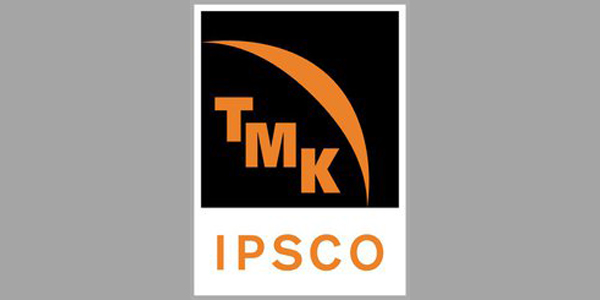 Our next CPOs on the Rise in 2011 story focuses on direct materials and the supply chain and an interview with “friend of the site,” Kirk Eberhart, Director of Purchasing at TMK IPSCO, one of the largest North American producers of welded and seamless pipe and premium connections that serves the oil and gas industry and many industrial markets. [Note that TMK IPSCO’s parent company, OAO TMK , is Russia’s largest manufacturer and exporter of steel pipe and ranks among the global top three pipe producers.]. I’m sure many of our readers know Kirk firsthand. Kirk has been a fixture at industry events for many years as a presenter, panelist, and/or enthusiastic attendee. Kirk has always been an invaluable resource for my research and other projects, offering a great executive perspective, a great industry perspective (energy/utility), and great practical expertise (sustainability and sourcing among the areas) and I thank him for his support in the past as I thank him now for supporting CPO Rising.
Our next CPOs on the Rise in 2011 story focuses on direct materials and the supply chain and an interview with “friend of the site,” Kirk Eberhart, Director of Purchasing at TMK IPSCO, one of the largest North American producers of welded and seamless pipe and premium connections that serves the oil and gas industry and many industrial markets. [Note that TMK IPSCO’s parent company, OAO TMK , is Russia’s largest manufacturer and exporter of steel pipe and ranks among the global top three pipe producers.]. I’m sure many of our readers know Kirk firsthand. Kirk has been a fixture at industry events for many years as a presenter, panelist, and/or enthusiastic attendee. Kirk has always been an invaluable resource for my research and other projects, offering a great executive perspective, a great industry perspective (energy/utility), and great practical expertise (sustainability and sourcing among the areas) and I thank him for his support in the past as I thank him now for supporting CPO Rising.
While we’ll focus today on Kirk’s top objectives for 2011, the procurement story at TMK IPSCO really starts three years ago, before TMK acquired the current TMK IPSCO operations. In those days, the purchasing function was fairly decentralized, with limited process automation, few enterprise-level contracts, and an under-leveraging of spend. Shortly after the acquisition, Kirk joined the executive team and helped put in motion a plan to centralize the purchasing oversight, enhance supply chain standards and processes, and begin to consolidate back-end systems and introduce supply chain systems to drive visibility and efficiency. Today, the eleven US plants are marching to the beat of the same drummer with visibility for jointly leveraged contracts and now have a great opportunity to capitalize on the earlier work. Kirk’s focus in 2011 is exactly that – to capitalize on the new opportunities. Three things are at the top of his list:
1. Electronification and Automation
After implementing a bar-coding system in 2009, Kirk and his team are now focused on a Master Data Management program designed to consolidate similar inventory, reduce an administrative burden in managing it, and ultimately free up working capital. With visibility and canned reports that share inventory at the plant and store level, Kirk’s team will be able to become more strategic in how the inventory is managed (more on that in part 2). Corporate sourcing is another big automation initiative for Kirk this year.
2. Improve Inbound Raw Material Quality
By Kirk’s estimation, this is his team’s biggest challenge today. Kirk wants to manage supplier quality more proactively. This is the second phase in a continuous improvement program that began in 2009 with the introduction of supplier scorecards, and what Kirk believes is a natural progression for a maturing procurement organization. Kirk understands the value of his company’s supply chain: “In times of trouble, a good supplier can help you out more than some internal group.”
3. Value Creation
According to Kirk, value creation for the procurement team at TMK IPSCO in 2011 will mean a focus on “beating the market on raw materials and improving current lead times.” One strategy they’ve introduced is a series of small arrangements with certain upstream raw materials suppliers to provide target ranges for purchases which can give suppliers a little flexibility in their own production. These relationships can net Kirk an extra week or two in finalizing volume orders, which has several direct and positive impacts for TMK IPSCO. As with many manufacturers, while its procurement team is trying to make smart timing decisions, smooth pricing across any given reporting period is what is ultimately desired.
Next time, we’ll pick up our story with Kirk and value creation and also look at how procurement collaborates with other groups and the opportunities for procurement-led innovation at TMK IPSCO and the market in general.
CPO on the Rise in 2011Name: Kirk Eberhart Title: Director of Purchasing Company: TMK IPSCO Education: B.A. Governors State University Years in Procurement: 18 Most valuable experience for current job: All that I’ve learned from situations when things DIDN’T go as planned. Most important skill used in current job: Working collaboratively with the stakeholders during the sourcing cycle and allowing them to have their say on everything from specifications to the selected strategy for the sourcing initiative. The key to achieving success in procurement: Understanding the internal customers total needs in terms of delivery, quality and cost as opposed to focusing solely on the dollars. |

